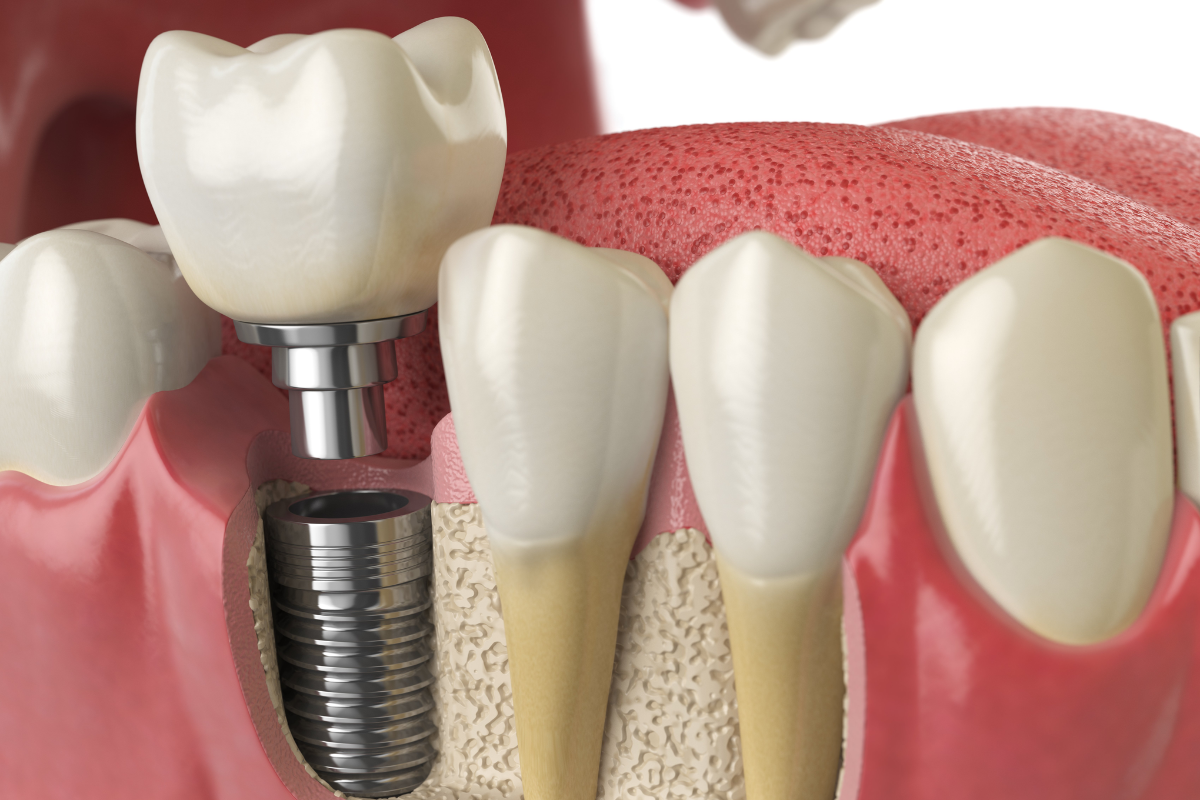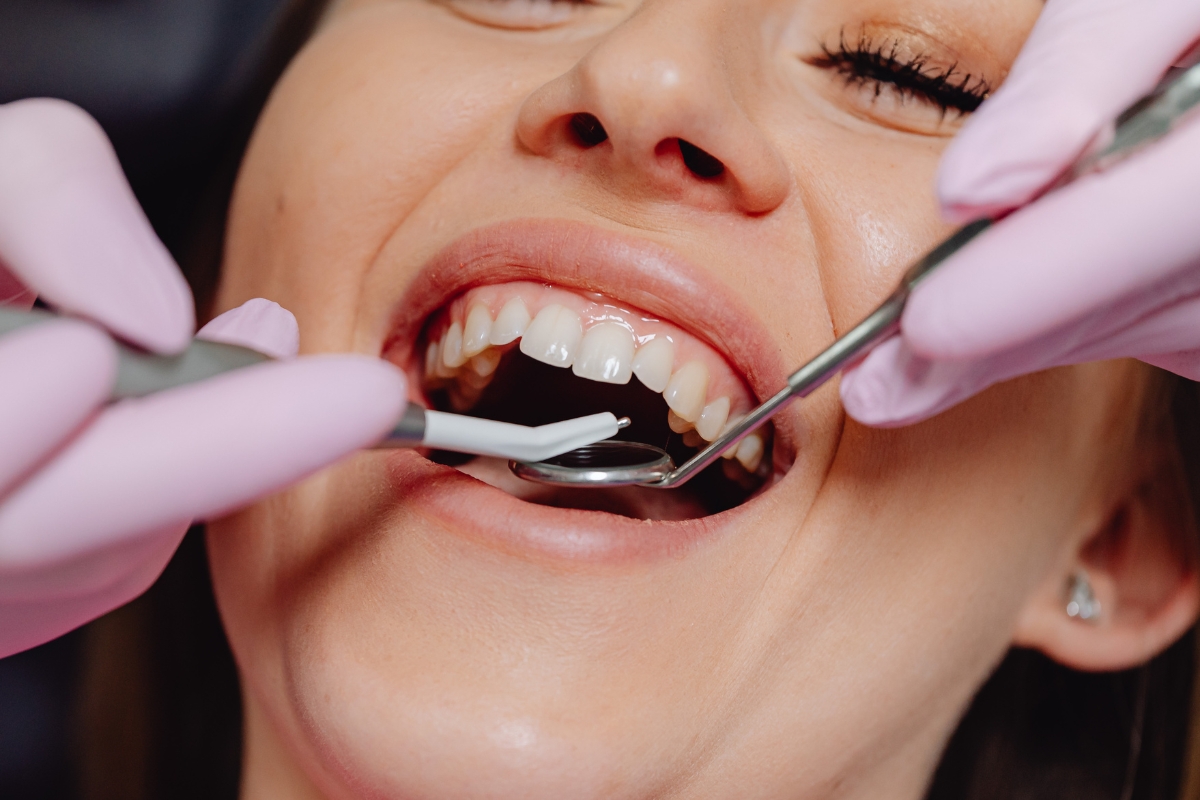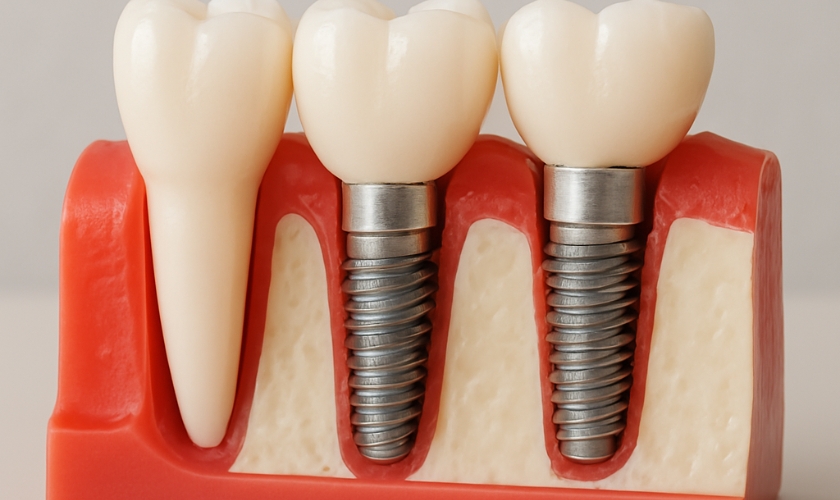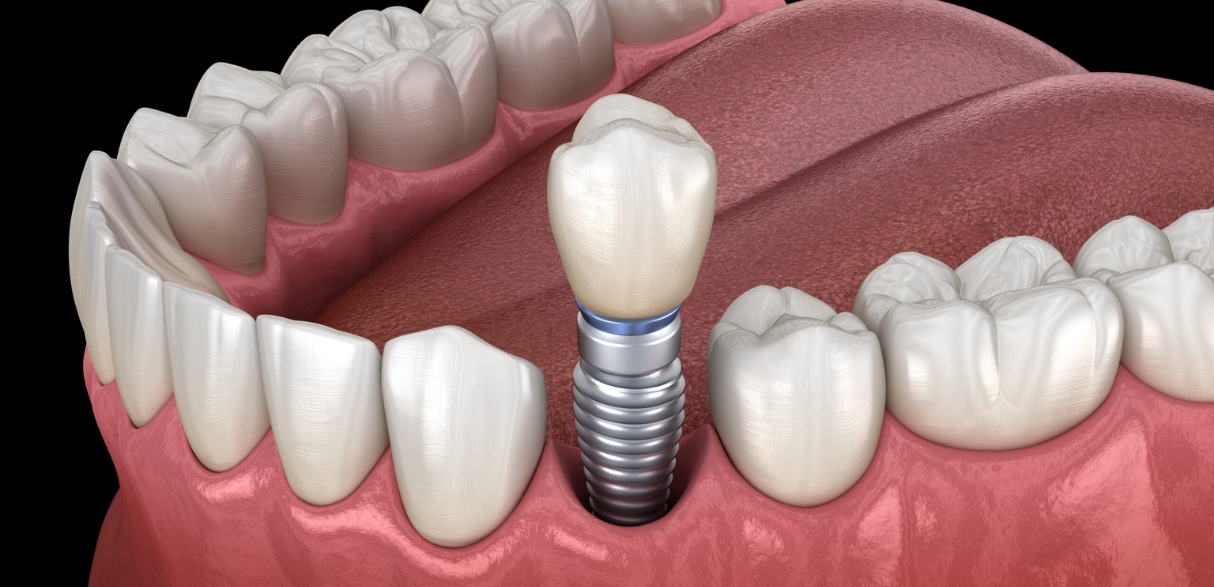
Chewing is one of those everyday activities we often take for granted—until a missing tooth makes it a challenge. If you’ve lost a tooth or are considering a dental implant, you might wonder, “Can I chew normally with a dental implant?” The good news is that dental implants are designed to restore not just your smile but also the full functionality of your teeth. Imagine biting into a crisp apple or enjoying a steak without hesitation—this is the freedom that dental implants offer. If you want to understand how dental implants can transform your chewing experience, keep reading to discover all the details.
Understanding the Functionality of Dental Implants
Dental implants have revolutionized how tooth replacement is approached, offering a more durable and natural-feeling option. If you’ve lost a tooth, you may wonder if a dental implant will allow you to chew normally. This question is crucial because chewing is an essential part of enjoying your meals and maintaining proper digestion. The good news is that dental implants are designed to mimic the natural function of teeth, enabling you to chew just as you would with your natural teeth.
Dental implants are anchored in your jawbone, providing stability and strength similar to that of a natural tooth root. Unlike traditional dentures, which may slip or cause discomfort when eating, implants are securely fixed, allowing for normal chewing without worry. The design of dental implants focuses on restoring both the aesthetics and functionality of your smile, ensuring that you can enjoy a wide variety of foods with confidence.
The Science Behind Dental Implants
A dental implant consists of three main components: the implant post, the abutment, and the crown. The implant post, typically made from titanium, is surgically placed into the jawbone. This post acts as a sturdy foundation, similar to a tooth root, and provides the necessary support for the crown, which is the visible part of the tooth.
One of the key reasons dental implants work so well for chewing is the process known as osseointegration. This is where the titanium post integrates with the jawbone, creating a bond that allows the implant to function like a natural tooth. Once osseointegration is complete, the implant becomes a permanent part of your mouth, giving you the freedom to chew all kinds of foods without hesitation.
Comparing Dental Implants to Other Tooth Replacement Options
When considering tooth replacement options, it’s essential to weigh the pros and cons of each. Dentures and bridges are common alternatives to dental implants, but they may not provide the same level of comfort or functionality.
Dentures: While dentures can restore the appearance of your smile, they often come with limitations in terms of chewing. Since dentures rest on the gums and are not anchored in the jaw, they may shift during eating, causing discomfort and making it difficult to chew certain foods. Additionally, dentures do not stimulate the jawbone, which can lead to bone loss over time.
Bridges: Dental bridges are another option that involves anchoring a false tooth to the adjacent teeth. While bridges offer more stability than dentures, they still rely on the surrounding teeth for support, which can lead to wear and tear on those teeth. Unlike implants, bridges do not fuse with the bone, so they may not provide the same level of chewing efficiency.
Implants: In contrast, dental implants offer a superior solution for restoring chewing function. Because they are integrated into the jawbone, implants provide a stable and permanent solution that allows you to enjoy your favorite foods without limitations. The strength and durability of implants make them the closest alternative to natural teeth.
The Role of Diet in Maintaining Dental Implants
Once you’ve had a dental implant placed, maintaining a healthy diet is crucial to ensuring its longevity. During the initial healing period, it’s important to stick to softer foods to allow the implant site to heal properly. However, once the implant has fully integrated with the bone, you can gradually return to a normal diet.
A balanced diet not only supports your overall health but also helps keep your dental implant in good condition. Foods rich in calcium and vitamin D are particularly beneficial, as they support bone health, which is vital for the stability of your implant. Additionally, staying hydrated and consuming foods that promote good oral health, such as crunchy fruits and vegetables, can help maintain the implant and surrounding gum tissue.
Avoiding excessive consumption of sugary or acidic foods is also important, as these can lead to gum disease or decay around the implant. Regular dental check-ups and cleanings are essential to monitor the health of your implant and ensure it remains functional for years to come.
Adapting to Life with a Dental Implant
Getting used to a dental implant may take a little time, especially if you’ve been living with a missing tooth or wearing dentures. However, most patients find that once the implant is fully healed, it feels just like a natural tooth.
One of the advantages of dental implants is that they allow for the natural distribution of bite forces. This means you can chew with the same intensity and pressure as you would with your natural teeth, without the worry of damaging the implant or experiencing discomfort. Over time, you’ll likely forget that you even have an implant, as it becomes a seamless part of your daily life.
Eating certain foods, such as tough meats, nuts, or crunchy vegetables, may have been difficult or uncomfortable before getting an implant. With a dental implant, you can enjoy these foods once again, as the implant provides the stability needed for efficient chewing. This can greatly improve your overall quality of life, as you can indulge in a varied diet without restrictions.
Caring for Your Dental Implant
Maintaining a dental implant requires the same level of care as your natural teeth. Regular brushing, flossing, and dental visits are essential to keep the implant and surrounding tissue healthy. Because the implant integrates with the bone, it’s important to keep the gums and bone structure strong to support the implant over the long term.
While dental implants are resistant to decay, the gums around the implant are still vulnerable to gum disease. Practicing good oral hygiene and attending regular dental cleanings are key to preventing gum disease, which could compromise the stability of the implant.
Using the right tools for cleaning, such as a soft-bristled toothbrush and non-abrasive toothpaste, can help protect the implant crown. Additionally, using floss or interdental brushes to clean around the implant can prevent plaque buildup and ensure that the implant remains in good condition.
The Psychological Benefits of Dental Implants
Beyond the physical advantages, dental implants also offer psychological benefits that can enhance your overall well-being. Missing teeth can impact your self-esteem and confidence, particularly when it comes to social interactions and eating in public. With a dental implant, you can regain your confidence, knowing that your smile is complete and fully functional.
The ability to chew normally without hesitation can lead to a more positive outlook on life. Whether you’re enjoying a meal with friends or simply indulging in your favorite foods, dental implants allow you to do so with ease. This restoration of normal function can have a profound impact on your mental and emotional health, making dental implants a valuable investment in your overall quality of life.
Common Myths About Chewing with Implants
Despite the many benefits of dental implants, some misconceptions persist, particularly when it comes to chewing. One common myth is that dental implants are fragile and can easily break while chewing. However, this is far from the truth. Dental implants are made from strong, durable materials designed to withstand the forces of chewing. As long as you follow your dentist’s advice and maintain proper oral hygiene, your implant should remain strong and functional for many years.
Another misconception is that dental implants require a restricted diet. While it’s true that you may need to be cautious during the healing period, once your implant has fully integrated, you can return to your regular diet. Dental implants are designed to handle the same range of foods as natural teeth, allowing you to enjoy a variety of textures and flavors.
What to Expect After Getting a Dental Implant
After getting a dental implant, it’s normal to experience some discomfort and swelling in the days following the procedure. Your dentist will provide you with aftercare instructions to help manage these symptoms and ensure a smooth recovery. During the initial healing phase, sticking to softer foods will allow the implant site to heal without undue pressure.
As you gradually transition back to a regular diet, you’ll notice that your implant functions just like a natural tooth. Most patients find that after a short adjustment period, chewing with a dental implant feels completely normal. You’ll be able to enjoy your meals without worrying about discomfort or slippage, which is a common issue with other tooth replacement options.
The Longevity of Dental Implants
One of the most appealing aspects of dental implants is their longevity. With proper care, dental implants can last a lifetime, making them a cost-effective and reliable solution for tooth replacement. The durability of implants ensures that you can chew and enjoy your favorite foods for many years to come.
Regular dental check-ups are essential to monitor the condition of your implant and the surrounding tissue. Your dentist will check for any signs of wear or complications and address them promptly to ensure the implant remains functional. By following your dentist’s recommendations for care and maintenance, you can maximize the lifespan of your dental implant and continue chewing normally without any concerns.
Embracing Life with a Dental Implant in Chatsworth
For those considering a dental implant in Chatsworth, understanding the benefits and functionality of this tooth replacement option can provide peace of mind. Dental implants offer a permanent solution that restores normal chewing function, allowing you to enjoy a varied diet and improved quality of life. By investing in a dental implant, you’re choosing a durable and effective way to maintain both the appearance and functionality of your smile.
With the ability to chew normally restored, you’ll find that everyday activities, from enjoying meals to socializing with confidence, become much more enjoyable. Dental implants truly offer the best of both worlds: a natural-looking smile and the full functionality of natural teeth. Whether you’ve lost a tooth due to injury, decay, or other reasons, a dental implant can be the key to regaining your ability to chew normally and live life to the fullest.



